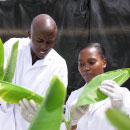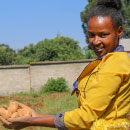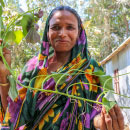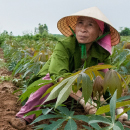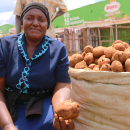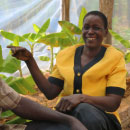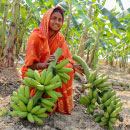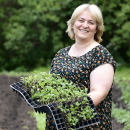A crucial element in plant breeding is to ensure that farmers and others, such as processors and consumers, will adopt and make use of new, improved varieties.
To that end, RTB has developed innovative techniques for working with end users so that their preferences are taken into account by crop breeders. Often this is done by enlisting the input of farmers in participatory variety selection. An important new development in these efforts now is to ensure that the different concerns of women and men are properly understood and incorporated in the breeding process.
In some cases, the key is to work separately with women and men. Breeding Better Bananas, for example, collected data on preferred traits from women and men farmers and then used the sex-disaggregated data to select promising NARITA hybrid bananas for on-farm trials. Assessment during the trials used gender-inclusive protocols that recognize the different roles that each play in the chain from production to market. While women and men differed on how they valued some traits, there were no differences on others, such as eating quality. More importantly, in these trials women identified traits not currently considered by banana breeders; ease of peeling, peel thickness and speed of cooking all matter to women. By giving voice to the entire spectrum of potential adopters, this approach ensures that crucial preferences can be incorporated into new varieties, increasing the likelihood that people will use them.
Although sex-disaggregated data are important in a variety assessments, this approach may miss subtleties associated with land tenure or market access, or whether people are immigrants or local residents. In the cassava production chain, for example, attitudes are shaped not just by sex but also by social identity and role within the value chain.
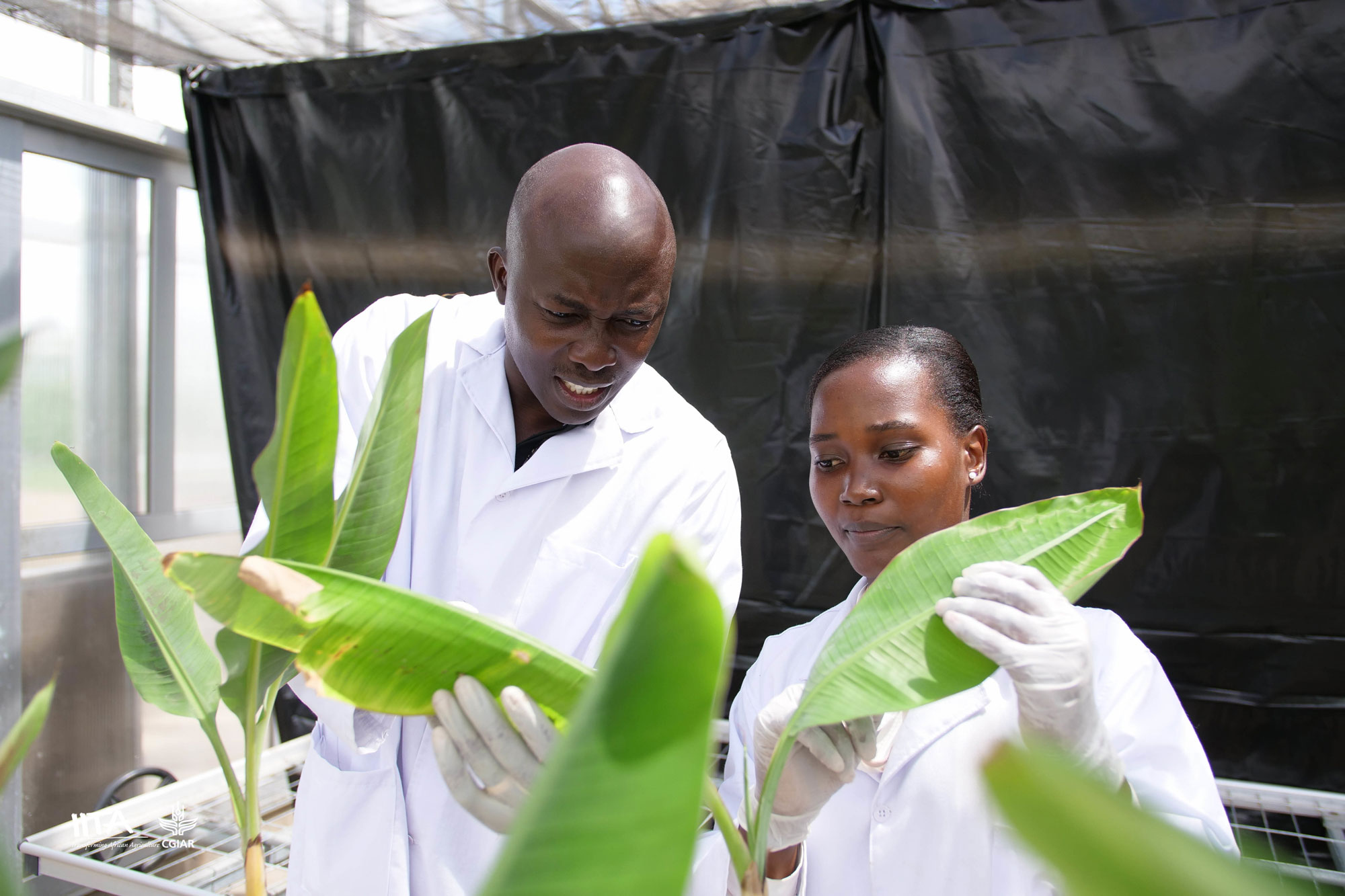
The NextGen Cassava project worked with the Gender and Breeding Initiative led by RTB to develop an intersectional tool that uses a task-based model. It essentially asks Who does what? to identify groups based on the tasks they perform, taking into account immigrant or local status, ethnic and language groupings, age and economic status and any other locally salient social grouping. People may, in this scheme, belong to more than one group, and certain groups may be more or less dominated by one sex or another. That too is informative about gender roles and norms and the opportunities for change.
A pilot study worked with cassava families in Osun state, Nigeria, to understand how they regarded different traits related to food quality. Small-scale processors are responsible for producing gari, a kind of granulated flour made from fermented and toasted cassava. Women are the main processors of gari, and formed the bulk of the participants, but many married men too were included and provided insights into household power relations and decision making. Immigrants form an important sub-group, dependent on local residents for access to land if they want to raise crops.
An important finding was that although women and men sell fresh cassava roots, processed cassava was mostly sold by women. Thus, one might expect trait preferences to depend both on who is expressing the preference and on the way they make use of cassava.
Having been successfully trialed with cassava in Nigeria, the intersectional gender tool is now being adapted for other crops in other locations. It offers a participatory process for eliciting trait preferences related to specific, possibly gendered, tasks that breeders can integrate into their product profiles.

